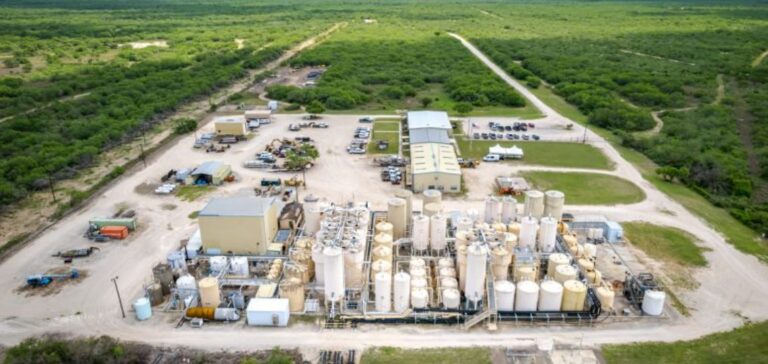enCore Energy Corp. has secured an extension of its Radioactive Materials License (RML) issued by the Texas Commission on Environmental Quality (TCEQ), now covering the Upper Spring Creek uranium project located in South Texas. This regulatory approval enables the company to begin construction of wellfields and a new Satellite Ion Exchange (IX) unit, connected to its central processing plant in Rosita.
The licence, which already includes the Rosita and Kingsville projects, has been amended to incorporate the Brown Area of the Upper Spring Creek project. This marks the third In-Situ Recovery (ISR) site authorised in Texas for enCore Energy. The company stated that the modular satellite facilities allow uranium to be processed on-site before being transferred to the central plant, ensuring operational flexibility across multiple remote sites.
Third authorised site in under two years
According to enCore, drilling operations began immediately after the licence was granted. Construction plans include site preparation, installation of support infrastructure, and pouring of the concrete foundation for the satellite IX unit, expected to start within 30 days. The company had already pre-staged equipment in anticipation of this approval.
The RML allows enCore to comply with regulations related to materials handling, safety protocols, and operational monitoring. The licence is valid through 2032, subject to continued operational compliance.
Delegated regulation and production schedule
The State of Texas operates under the United States Nuclear Regulatory Commission’s (NRC) Agreement State Programme, granting it regulatory authority over certain radioactive materials. Texas regulations are required to remain compatible with those of the NRC, particularly concerning uranium production.
With this expansion, enCore now holds two active RMLs in Texas, covering the Alta Mesa, Rosita, Kingsville, and Upper Spring Creek project areas. The company expects to begin recovering uranium by the end of the year and to increase production in 2026, according to Executive Chairman William M. Sheriff.






















